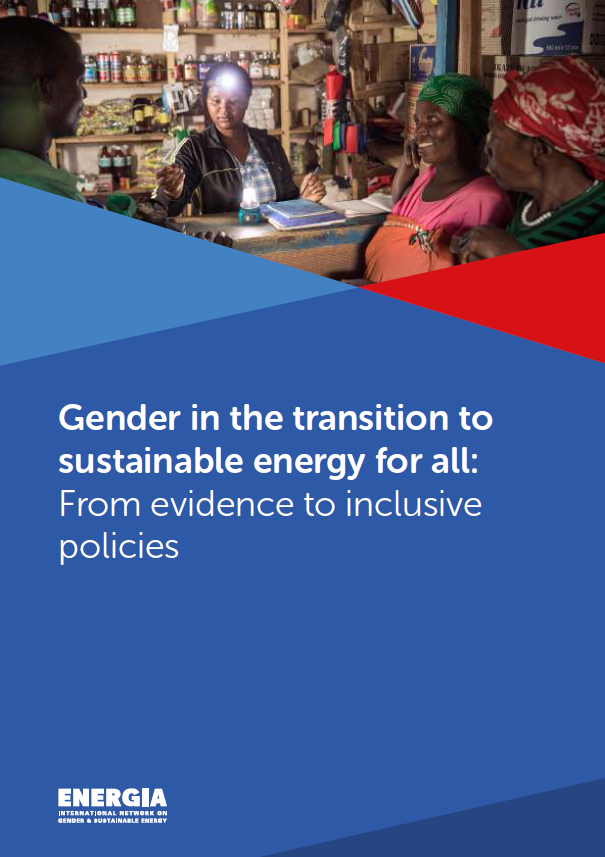Gender in the transition to sustainable energy for all: From evidence to inclusive policies
 |
Synthesis report of the evidence generated by the ENERGIA Gender and Energy Research Programme
rapport Mar 2019 ; 106 pages
Aut. Joy Clancy & Soma Dutta
Ed. Energia - The Hague
Téléchargeable sous format: PdF
Téléchargeable chez l'éditeur
Page de présentation d'un éditeur
Abstract:
This report goes through the findings of the five-year research programme on gender and energy (2014-2019), coordinated by ENERGIA. The objective of the programme was to generate and analyse empirical evidence of the links between gender, energy and poverty, and to translate this evidence into recommendations for energy policy and practice. In the context of energy access, the research sought to test the hypotheses that a gender-aware approach will:
- lead to greater equity between women and men in the impacts of modern energy services, and
- transform traditional gender roles and relations by empowering women through improved access to, or participation in the delivery of, modern energy services.
The research explored gender, energy and poverty linkages in six thematic areas identified through a review of current literature: (a) electrification, (b) productive uses of energy, (c) energy sector reform, (d) the role of the private sector in scaling up energy access, (e) the political economy of energy sector policies, and (f) women’s energy entrepreneurship. Although cooking energy was originally excluded as a theme due to overlap with other DFID supported research, many findings relevant to cooking energy emerged in the research and are included in this report. Each of the themes was narrowed to more specific research topics; for example, the wider theme of energy sector reform was narrowed down to focus on fossil fuel subsidies. This report presents a prioritised selection of key messages and associated policy implications. Recommendations for policy development and future research are included. Contents:
1. Building evidence on gender and energy p.20
2. Research findings p.28
3. Policy Implications and recommendations for policy, practice and research p.71
4. Conclusions p.84
Publics-Cibles:
Acteurs de coopération , Socio-économiste , Décideurs locaux ou nationaux
Mot clef: |
Pays concernés: |
Rwanda (CI) (DT) (OP) , Indonésie (CI) (DT) (OP) , Sénégal (CI) (DT) (OP) , Inde (CI) (DT) (OP) , Bangladesh (CI) (DT) (OP) , Birmanie-Myanmar (CI) (DT) (OP) , Tanzanie (CI) (DT) (OP) , Afrique du Sud (CI) (DT) (OP) , Ghana (CI) (DT) (OP) , Kenya (CI) (DT) (OP) , Népal (CI) (DT) (OP) , Nigeria (CI) (DT) (OP) |
Editeur/Diffuseur: |
|
Energia - The Hague - Pays Bas |
En cas de lien brisé, nous le mentionner à communication@pseau.org